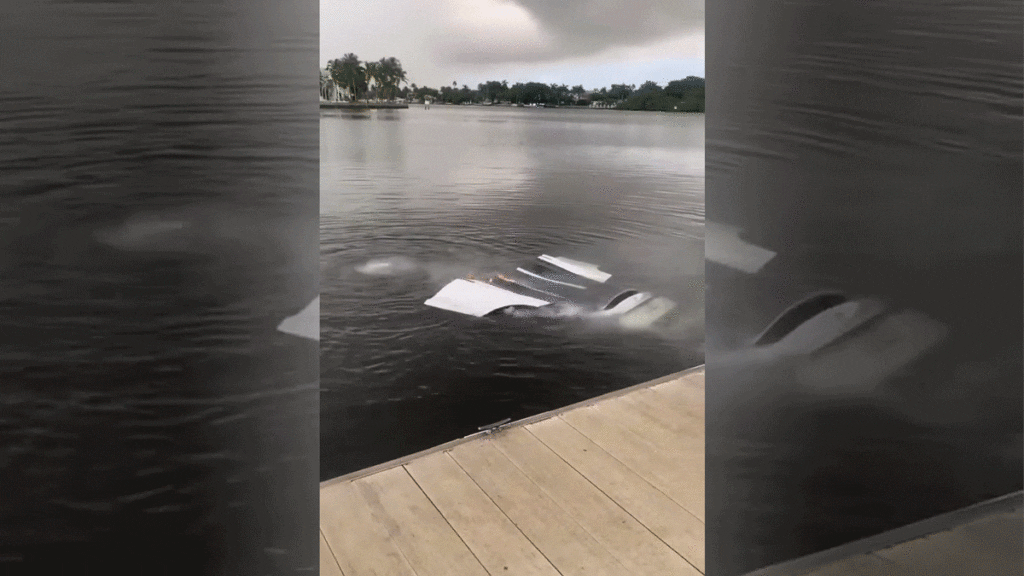Tesla Model X Briefly Serves As Boat, Becomes A Boat Ramp Champ Legend

A Tesla Model X in Hollywood, Florida, created its own Viking funeral last month after it slid into the ocean and caught fire at a boat launch.
I Need To Replace My Dying Volkswagen | What Car Should You Buy?
The moist self-immolation of the Tesla Model X occurred at the Polk Street Boat Ramp in Hollywood, Florida on October 1. The driver of the Model X had just backed a pair of jet skis into the water The Hollywood Professional Firefighters’ Facebook page posted video of the incident:
The firefighter’s social post say the car “lost traction” but a video shot on sight has a more harrowing recounting of the incident:
An Unsuccessful Tesla Boat Launch #tesla #automobile #car #boat
In this recounting, the driver received a warning to get out of the car, however the power doors wouldn’t allow her to exit the vehicle. Luckily, the driver’s husband came to the rescue before the Model X could simultaneously sink into the saltwater and go up in smoke. No one was injured in the incident.
As you may have heard, saltwater and electric cars don’t mix. Not only does the water cause lithium-ion batteries to combust, the minerals left behind after the battery packs dry out can spark fires days or weeks later. The Hollywood Fire Department handled this particular car fire like an unruly toddler, just waiting for it to burn itself out to make sure it wouldn’t cause problems later:
The fire was allowed to burn underwater until it extinguished itself. And even then, it had to be loaded carefully onto a special carrier, and followed by the Fire Engine to the impound lot, where they’ll keep the vehicle isolated for a few days in the very real possibility of re-ignition. EVs have been known to reignite even after the initial fire has been extinguished.
While it is much more likely an internal combustion engine will catch fire than an EV, such battery fires can be particularly difficult to fight. Despite years of development, fire departments are still shaky on how to handle EV fires. The usual move is to deny the fire oxygen, but that doesn’t work with lithium-ion, which can happily burn away without oxygen. So in this instance, the battery is likely burning below the water line, as well as igniting toxic off gassing coming from the battery itself.



